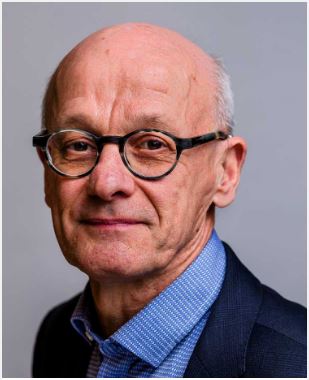XI NIS International Research-to-Practice Conference
Inspirational Speakers

International Speakers
Theo Wubbels
Professor Emeritus of Educational Sciences at Utrecht University, Netherlands
Theo Wubbels is emeritus professor of Educational Sciences at Utrecht University in the Netherlands. His research interests developed in his career from the pedagogy of physics education, via problems and supervision of beginning teachers and teaching and learning in higher education to studies of learning environments and especially interpersonal relationships in education. He received his BSc and MSc in physics of Utrecht University. After being a physics teacher in a Montessori High school he completed his PhD in Social Sciences in 1984 at Utrecht University. During his career among others he served as director of teacher education, associate dean of the Faculty of Social and Behavioural Sciences, dean of the Graduate School of Social and Behavioural Sciences, and Admissions Dean of Utrecht University. He has acted as a chair and member on numerous committees and boards and until recently was president of the European Educational Research Association and treasurer of the European Alliance for Social Sciences and Humanities. He published over 200 international journal articles and edited several books in Dutch and English. He is fellow of the American Educational Research Association.
XI NIS International Research-to-Practice Conference, 24-25 October 2019: Keynote Speech
Teacher Agency in Classrooms and Beyond
Teacher agency is seen in the literature as a key not only for facilitating student learning but also for continuing professional development, collaborative teacher learning and school development. Teacher agency usually is studied as the teacher’s effort to engage in activities and intentional actions, more often outside than inside the classroom. Seldom it refers to the work of the teacher in interaction with students. This is surprising because most of a teacher’s work is in the classroom when communicating with his or her students. In this presentation therefore, I approach teacher agency from an interpersonal perspective and first focus on what is happening in teacher-student interactions. A wealth of research has shown that agency is an important concept in teacher-student interactions (and relationships), but it is only one of the two essential dimensions to be studied. Communion is the second important dimension and for example in the concept of the teacher as warm demander it has been shown that both agency and communion are needed. It appears fruitful to consider teacher agency also outside the classroom from an interpersonal perspective with the dimensions agency and communion and to combine these dimensions with elements from the Self-Determination Theory.
XI NIS International Research-to-Practice Conference, 24-25 October 2019: Keynote Speech
Teacher-Student Relationships to Facilitate Learning
Teacher-student relationships are an important factor in effective learning environments. This workshop will cover findings of a research program that studied for more than thirty-five years teacher-student relationships and will situate these results in the broader knowledge base on teacher-student relationships. I will summarise the interpersonal perspective on the study of teaching and introduce instruments to measure perceptions of the teacher-student relationship and teacher-student interactions. We will practice observing teacher-student interactions and look at the way a student (and teacher) questionnaire can be used for investigating the quality of the teacher-student relationship. Based on the preferences of the participants I will then present and discuss a selection of results on for example the associations of teacher-student relationships and student outcomes, student engagement and student goals, changes in the teacher-student relationships over time and developments during the teaching career, common teacher problems in the relationships with their classes, building positive and negative teacher-student relationships, destroying positive relationships, teacher student relationships in student centred environments, teacher education for effective teacher-student relationships, et cetera.
